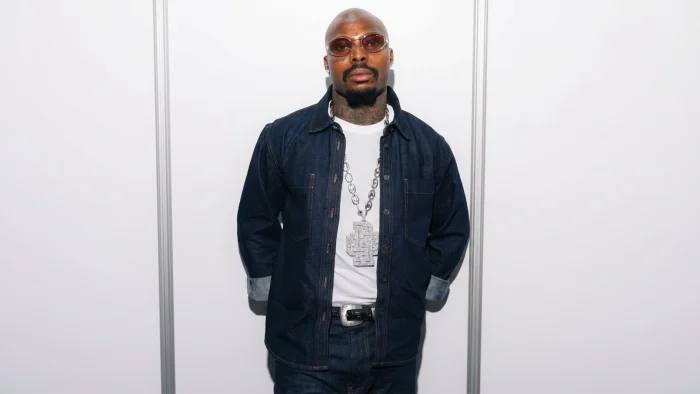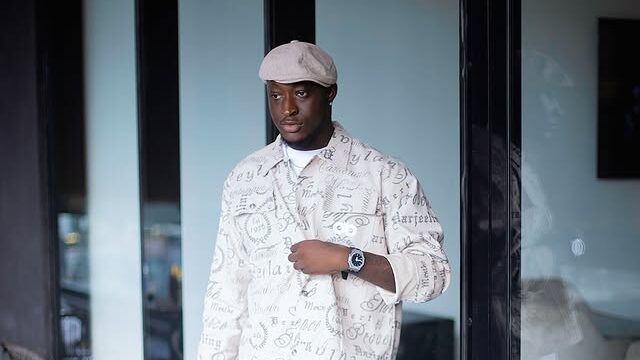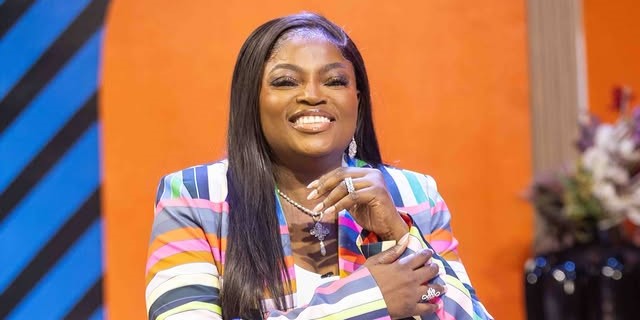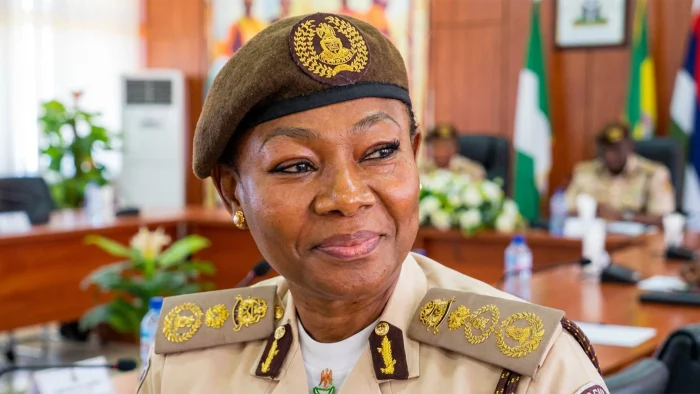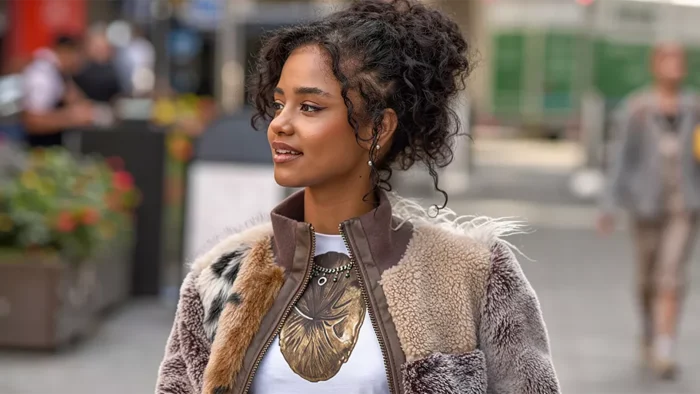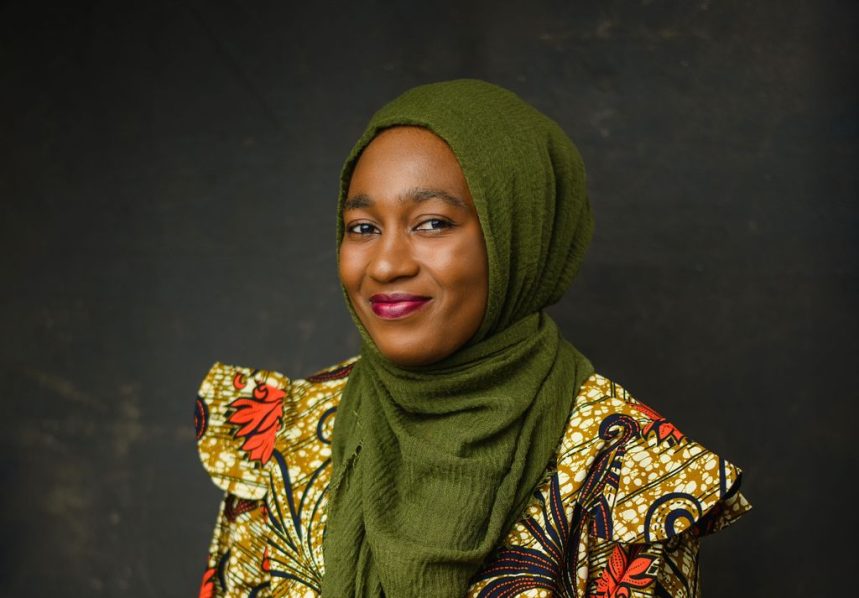
When Netflix and UNESCO announced winners of the African Folktales Reimagined competition, the list had just one Nigerian, Korede Azeez, among the chosen six. The former BBC Media Action employee speaks to Oris Aigbokhaevbolo about the experience of pitching and shooting her short film, Adieu, Salut, for the global streaming platform.
What were you doing before the call for entries for the competition?
I had just finished directing my first feature film for Native Filmworks. The company got some of us to make TV films. I am a screenwriter as well, so I was also working on getting a few projects off the ground.
[ad]
Let’s go back a bit, what was growing up like?
I am from Oyo State and grew up in Enugu State. My dad was in the army and was frequently transferred. My mum got a job in Enugu when he was transferred there; that’s how I got to be raised in Enugu. They are both dentists. My entire family is well educated. My maternal grandfather was a professor of pathology; he practiced in Saudi Arabia for over a decade while my grandma was a nurse who practiced in the UK and Saudi Arabia. All of my mum’s siblings are engineers, doctors and so on.
What did you get up to in school?
Then, Enugu didn’t have a lot of radio stations, but we had one in our school, Caritas University, that became quite popular. I was lucky to get involved with it right from my first month in school. They were doing trials and I was able to get in, doing some writing. The main thing I did was to turn a story I had read into a radio drama. The inspiration was Story Story, a BBC radio drama. This was in 2014 and I learned a lot about writing, producing and sound engineering with that project. Later I got an opportunity to do a sound engineering internship with BBC Media Action in Abuja while I was serving, although the university station wanted me to serve there. But I was tired of Enugu. I also wanted to do TV, which I did briefly for a station before the BBC internship. While at the BBC, I got involved with Story Story, which I had been listening to. About two years later, after working remotely as a copywriter for a foreign firm, I got a job there as assistant technical producer. It was there I honed my skills in audiovisual production. One of my colleagues had gone to film school and through him; I made my first short film in 2018.
What was this short film about?
It was about a woman who thought she killed her husband and her mother. The title was Tip of the Edge. I think it cost roughly 80,000 Naira to make and it was about seven minutes. We had formed a young filmmakers’ collective. The collective oversaw production. Everybody is doing their own thing now, though.
So, after the BBC, what happened next?
I wrote a script for an American producer who wanted Kenneth Gyang to direct a film out of her book. I had met Kenneth on a BBC project and we got talking probably because he saw me watching a black and white film in a period where I was studying German expressionism, I think. The American producer’s film hasn’t been released yet. I also wrote an audio series for TNC on YouTube.
[ad]
Did you leave the BBC to freelance?
[Laughs] Well, the BBC establishment I worked for operated like an NGO. Their work is project-based, so when COVID hit, things had to change. I was going to leave the next year anyway because I really wanted to pursue film. But you know how salaries can make you comfortable and reluctant to leave. I have done some video editing and shooting for a documentary and a feature film; I think they’ll both be released next year.
How did you hear about this competition?
A lot of people sent it to me via WhatsApp but it was also just popular online. I didn’t think I could get in. Many people would see it; many would apply. But in looking at the call, I saw that I have the required profile. That was good. But I couldn’t think of any folktale I was interested in. I then did a deep dive; I was just reading and reading what I could find online. I found many tortoise stories, which I couldn’t use. Luckily, I found one story about a girl whose parents wanted her to marry a rich man but who wanted to marry someone handsome. Her parents refused but she insists when she finds a good-looking man in the market. After the marriage, on her way to his home, the guy starts dropping body parts to people he borrowed specific parts from. Turns out he was a skull, a spirit who borrowed those parts to impress the girl. Before this becomes clear to the girl, she finds that she is already in the spirit world where she has to work for her in-law and would be killed by other spirit world inhabitants. The story struck me as one parents would have told their daughters to scare them into doing what they say and marry the men they want them to marry. I found it annoying. I have always had this independent streak…
Rebellious streak?
[Laughs] Not rebellious. I just had questions.
[ad]
So, the story struck a personal nerve.
Yes. But my argument in Adieu, Salut is different from the lesson the folktale was probably trying to teach. My argument is, Tradition is good but listen to your children, listen to women. The idea of forcing girls to marry whoever is still very rampant and the connection to child brides in the north clicked for me. As a fan of sci fi and fantasy, I set it in the future because I have always wondered where technology might bring us in the next couple of years, especially with the internet and social media. All of these informed my reimagination of that folktale.
How long did it take you to put the application together?
We had to send a treatment first. It took at most a week to work it all out. I submitted it quite close to the deadline.
So how long was the wait to hear back?
It took a few months. I was trying to forget about it. [Laughs] The first email was sent to inform me that I was part of the initial 21 selected. We were then asked to prepare a pitch. We had a class with someone from Netflix to help with the pitch. We then went to South Africa for about a week to pitch.
At that stage, did Nigeria have more than one representative?
There were four Nigerians. One of them happened to be a producer on one of the projects I had worked on. We all had to wait for another excruciating five weeks to learn who made the final selection of six.
I can just imagine how excruciating that was.
[Laughs] And then I got the email.
How did you react when you read it?
I think I sat on the floor. I was at home. I must have sat there frozen for 10 minutes.
Did you know whom you wanted as a producer at that point?
Not really. It was after that; I started thinking about all of that. I then reached out to Kenneth Gyang. His production company, Cinema Kpatakpata, is producing it.
[ad]
So how is the shooting going? Where’s the location?
We have finished shooting. We shot in Jos. Originally, I wanted the Agadez. Crazy, right? [Laughs] But Netflix was like, “No, shoot in your own country.” The only other place was Yobe.
That has its own problems?
Yes. The major challenge is the insurgency in that area. It’s very volatile. I had to go through a phase of reworking the story. It was painful but necessary and the core of the story still remains.
According to the Oscars, short films can be a film that isn’t up to 40 minutes. How long should we expect Adieu, Salut to be?
It should be about 20 minutes. I am excited about it. Kenneth, the producer, is also excited. I expect the audience to be excited when it comes out on Netflix.
When might that be? As a potential viewer, I have to say the premise is interesting
Thank you! I believe all of the winning six films will be delivered to Netflix, at the latest, by December. As for a release date, that is entirely up to Netflix. I’ll be waiting like everybody else.
[ad unit=2]


